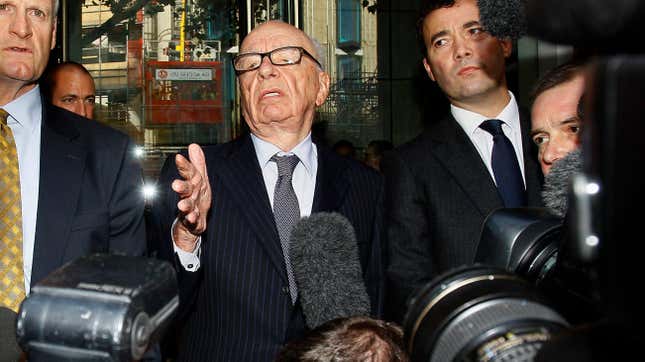
The big, wrinkly brain at the head of the massive conservative News Corp media conglomerate, Rupert Murdoch, announced he’s finally stepping down Thursday. The 92-year-old multi-billionaire—who brought us Fox News as the centerpiece for a massive news and entertainment media empire—is finally slinking away to live the rest of his days away from hard scrutiny.
Murdoch has been a major figure in the media business since taking over the Australian daily The News after his father’s death in 1952. Murdoch’s son, Lachlan Murdoch, the previous CEO of Fox Corporation, is taking his father’s place. There’s an open question where Lachlan lands on the political spectrum, but according to some sources, he’s even more conservative and Trump-loving than dear old dad. A Fox spokesperson called this all “just speculation” in a comment to Reuters.
Murdoch leaving the business isn’t so much excising a demon from Fox critics’ collective psyche as much as it’s building anxiety about an uncertain future. Angelo Carusone, the CEO of left-leaning nonprofit Media Matters for America, didn’t mince words about the now-ex-media-mogul, saying his media empire “helped reshape the Republican Party into a Trumpist authoritarian death cult.” Carusone said Lachlan’s leadership “will likely just intensify the misconduct, misinformation, and malevolence that have come to define Murdoch media.”
You don’t become the biggest name in worldwide media without also becoming something of a major influence on tech. With his direct influence now waning, we can do a bit of an obituary on the mogul’s efforts to influence the world of tech, and how both his direct and unintended efforts have contributed to the shape of our current digital landscape. News Corp wanted to be the biggest name in digital media, and at every step it failed to compete with other big names, leaving it to rely on the bread and butter of its conservative news apparatus.
Murdoch’s billions were involved in consolidating the world’s online media experience. His no-holds-barred operating philosophy would end up violating people’s privacy and setting us up for the state of current social media and content streaming. All the while, News Corp’s entities would struggle to find an actual, legitimate foothold in the digital frontier. Instead, Fox News and other Murdoch-owned brands facilitated a new media environment where disinformation ruled the day and truth was laid aside for conservative grievance. Even though Grandpa Murdoch is now out of the spotlight, things won’t likely change any time for News Corp.
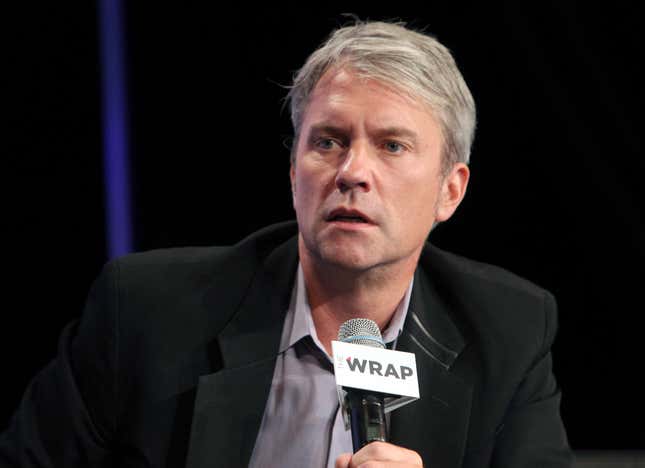
MySpace was the prototype for all social media, a place to share your taste in media and music, and it was also owned by one of the largest media empires in the world. After its initial debut in 2003, the site was the hottest thing on the web, so much so that company president Tom Anderson claimed in his book that Mark Zuckerberg tried to sell Facebook to them for $75 million in early 2004.
Then came the clincher, News Corp bought out MySpace for $580 million. The site continued to grow and under News Corp’s banner, it launched several localized versions across the world. It reached more than 300 million users, which at the time was a big number. It could have been worth billions, or Murdoch and his underlings at News Corp thought. Anderson and CEO Chris DeWolfe were brought into Murdoch’s inner circle.
You see, Murdoch wanted MySpace as an ad vehicle and a news distribution channel for all of Murdoch’s other media enterprises, as Bloomberg reported back in 2009. But that’s not what the site was designed to do. Then Facebook blew up. The social site left college campuses behind and tried to offer a real reality distortion machine. Facebook grew, and MySpace declined as it took too long to keep up and offer a competing service.
Murdoch unloaded MySpace in 2011 for just $35 million, losing out on around $545 million compared to its initial buying price. Six years in and all Murdoch had to show for his efforts was making Facebook, now Meta, the new face of online disinformation distribution.
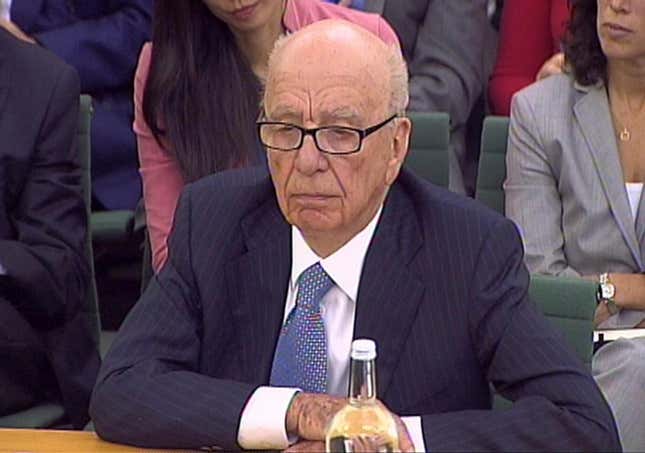
Murdoch has long held dominion over the British tabloid scene, and that hasn’t come without major controversy. Back in the mid-to-late 2010s, multiple investigations showed staff at the notorious newspaper News of the World were engaged in a large-scale phone hacking operation that included major political figures, celebrities, and even the British royal family.
One investigation showed staff hacked the phone of a murdered girl and there’s evidence the News of the World tried to hack victims of the 9/11 attacks. It led to the arrest and conviction of editor Clive Goodman, while James Murdoch, Rupert’s son, quit the organization after multiple lawsuits, payouts, and large-scale scrutiny.
The UK government and police launched their own investigations in 2011. The grand poobah Murdoch would eventually have to testify about all the spying where one protester tried to throw a pie at him. We may never know just how much money Murdoch’s company paid in settlement to those impacted, though Prince Harry recently said Prince William received a pretty handsome settlement.
If anything, News Corp’s involvement in the phone hacking scandal put new emphasis on digital privacy and security on mobile devices. You can thank Murdoch’s news empire for that much, I guess.
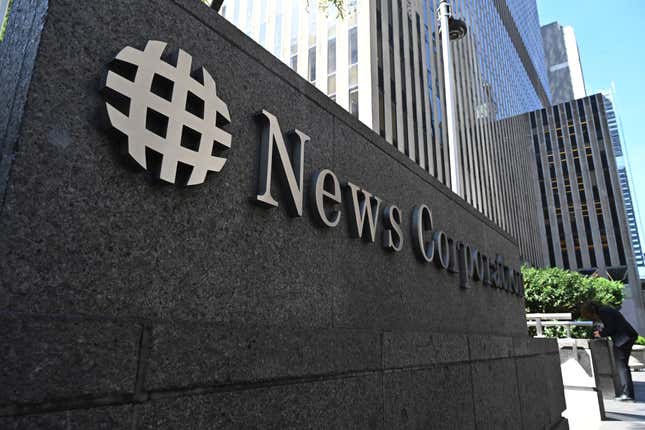
News organizations have demanded for over a decade for search engines and social media sites to pay for the privilege of accessing their content, and Rupert Murdoch’s News Corp was once one of the few main figureheads for that rolling battle that grew to include MySpace antagonist Facebook among other social platforms.
Back in 2009, Murdoch was quoted saying “the aggregators and plagiarists will soon have to pay a price for the co-opting of our content. But if we do not take advantage of the current movement toward paid content, it will be the content creators — the people in this hall — who will pay the ultimate price and the content kleptomaniacs who triumph.”
News Corp’s brands like The Wall Street Journal would be some of the first major papers to find success with an online subscription model, but Murdoch put pressure on big tech companies alongside the Australian government to force these payments. Like Facebook before it, Google threatened to block services in the country if it didn’t get what it wanted, but it wouldn’t be until 2021 when Murdoch penned a deal with Google that would grant news organizations some amount of money for the search engine using journalists’ work.
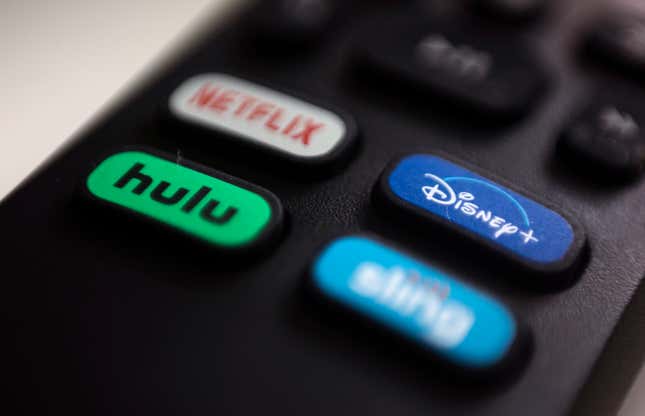
Despite its current eponymous standing among the giants of streaming, Hulu’s humble origins began as a joint venture between NBC Universal and News Corp working with AOL, MSN, MySpace, and Yahoo! back in 2007.
The service could never really gain as much traction as its main competitors like Netflix, and bits and pieces of its business were kept or sold off until 2019 when Disney bought out 21st Century Fox. This resulted in the House of Mouse holding a majority stake in the service from 2019 onward, and Disney used that control as a sweetener for its own streaming service Disney+. Now the entertainment media conglomerate is planning to combine Disney+ and Hulu into one app, finally sparking the end of Murdoch’s nascent plan for streaming dominance.
Well, actually, there’s one more streaming offering that has seen some success. The Fox Corp-owned Tubi doesn’t spend much time in the limelight, but it’s become a small powerhouse of a streaming platform with a wide selection of shows, movies, and some live TV that other streamers don’t consider worth their time. Lachlan Murdoch reportedly turned down a $2 billion buyout of the free-to-watch service, according to Bloomberg, several times more than the $440 million Fox paid for it back in 2020.
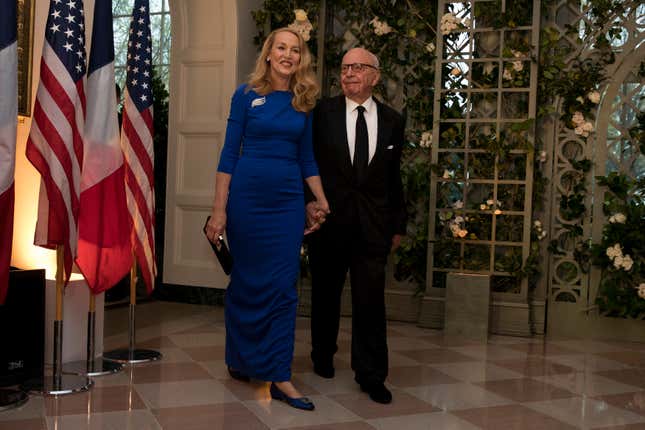
Former president Donald Trump, arguably the most successful online influencer of all time, had an incredible ally in Rupert Murdoch. Fox News stayed solidly behind the president all throughout his four-year White House stint, and during that time Trump would reportedly call Murdoch multiple times a week. Murdoch visited the White House several times less than a year into his presidency despite the frequent rumblings that he personally disliked Trump on a social level. Since leaving office, Trump has been wrapped up in the Truth Social saga and trying to stay out of jail.
As NPR noted in a 2017 report, Murdoch may have disagreed with Trump on issues such as mass deportations, but Fox News would become the bedrock of Trump’s messaging. Just a few slides later, you’ll see how that all shook out with the Dominion lawsuit.
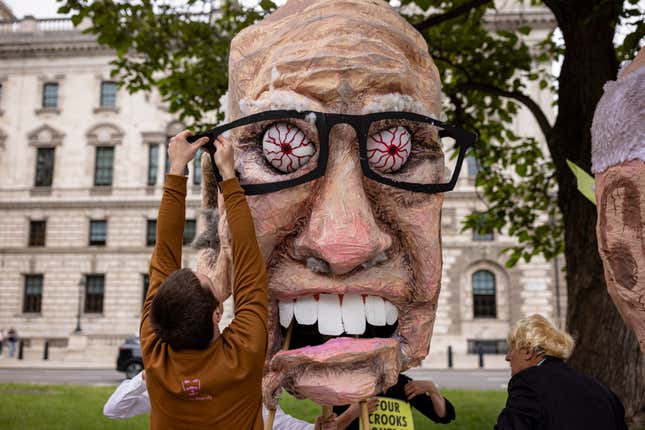
Back in 2015, Murdoch purchased a 73% majority stake in the age-old nonprofit nature and science magazine National Geographic. This was through a joint venture with the National Geographic Society and 21st Century Fox, and Fox would increase the magazine company’s endowment by $725 million. It essentially consolidated all of NatGeo into one, easily controllable, easily sellable institution. The nonprofit science magazine would control just 27% of its own organization.
The next, obvious question is… why? The stated purpose was to establish a new kind of media company to focus on nature and science reporting, but at the time Murdoch called himself a “climate change skeptic,” which you can parse as honest-to-god science denialism. The corporate wrangling was only the start, however. In 2017, Disney announced it was buying out 21st Century Fox, which included the controlling stake in National Geographic. In 2019, the NatGeo magazine arm would come under Disney’s own publishing service.
Under the crushing weight of corporate demands, the hollowing out was inevitable. Under Disney’s auspices, the magazine laid off six of the top editors in 2022. Following that, the magazine fired its entire cast of staff writers in June this year. In 2024, National Geographic plans to end all newsstand sales.
After it let go of NatGeo, News Corp would later attempt to spin the other way on climate change by promoting carbon neutrality in Australia, but his vast media empire continued to spew anti-science rhetoric to all parts of the globe. Say, how’s that Fox Weather channel going?
Murdoch isn’t known for his love of science. The Australian-born billionaire turned Fox News into the mainstream home for climate denial, promoting hosts like Laura Ingraham and Tucker Carlson who repeatedly beamed climate change conspiracies directly into the homes of millions of viewers. Fox News continues to promote anti-climate change books and public figures, even after folks like Carlson were sacked.
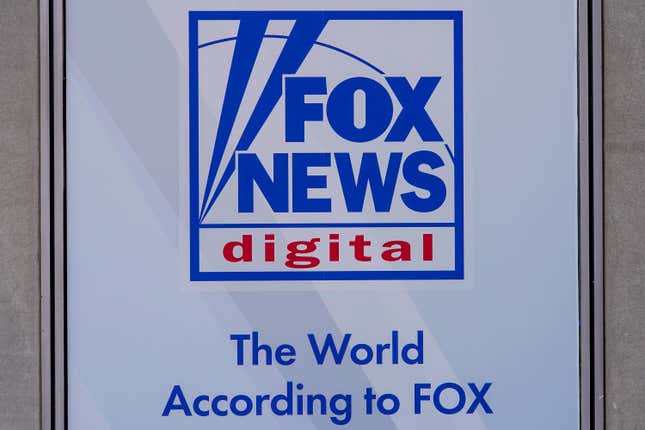
Fox isn’t unknown to video games, but FoxNext was one of its most short-lived attempts to jump on the growing market for VR content. Back in 2017, before Disney bought out 21st Century Fox, Fox Entertainment Group had a very strange idea for its own kind of virtual reality studio. Veteran Fox exec Salil Mehta was tapped to lead the new initiative that would focus on gaming and virtual/augmented reality productions both at home and at amusement parks.
For this new push into a pre-metaverse VR mission, FoxNext brought in the studio behind the excellent 2014 survival horror game Alien Isolation. The first properties on the new studio’s plate surrounded major franchises like Alien and Planet of the Apes. Stranger still, the studio was trying to cook up an Alien game that at one point was supposed to be a MMO shooter.
The company did pump out at least one VR “experience” called Alien: Descent. According to a video taken from the Orange Mall in Orange County, California, players strapped up with arm and leg tracking components along with the VR headset to shoot up some aliens. That site has long since closed.
One of their first projects was actually a mobile game, Marvel Strike Force. The company would help publish a few other mobile and licensed titles.
As mentioned before, Disney finally acquired 20th Century Fox in 2019, and Mehta returned to Disney. FoxNext Games itself was sold off to the mobile game publisher Scopely. All together, FoxNext is dead, and all the games assigned to the company have been pushed off on other developers.
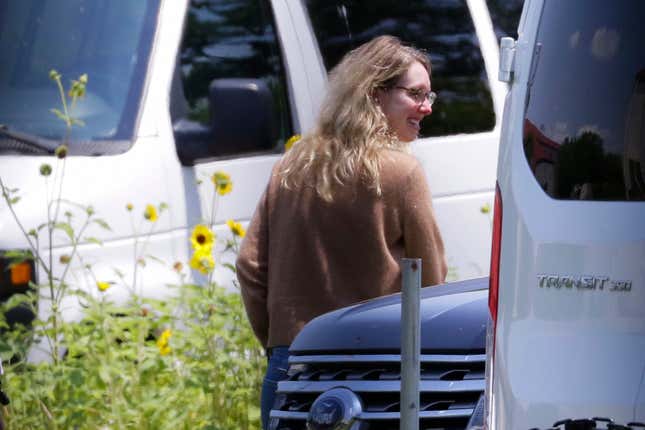
Murdoch was just one wealthy man of many to get suckered into Theranos founder Elizabeth Holmes’ great big blood fraud Theranos, but he was one of the top investors. Murdoch was the largest individual investor in the project, putting down $121 million into the fraudulent blood testing kit.
After Holmes was charged with fraud, Murdoch’s name kept appearing on the docket. After she was sentenced to more than a decade in prison (which has since been quietly reduced) more attention was paid to the legions of investors than to the patients who were promised miracle blood testing kits. A judge name-dropped Murdoch’s during sentencing as one of the major investors who lost out on a total of $121 million, despite prosecutors claims investors were owed $804 million. Needless to say, Murdoch hasn’t made much back on this investment.







